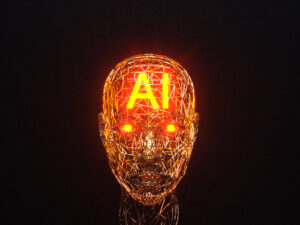Artificial intelligence advances in a variety of directions, rather than all at once.
Table of Contents
Elon Musk has stated that we are on the brink of “the singularity”—a time where artificial intelligence (AI) outperforms human intellect in a way that profoundly alters humanity. Ray Kurzweil has long prophesied this occurrence, putting it at 2045, claiming that accelerating technological advancement will result in an intellectual boom. But what if the singularity doesn’t exist in a single moment? What if it’s a spectrum that unfolds at varying rates across different dimensions?
The singularity has traditionally been portrayed as an all-or-nothing event, a sudden shift from human supremacy to AI dominance. However, history shows differently. Technological advances typically occur slowly, and in unanticipated ways. rather than investigating a single “singularity event,” it may be more fascinating to explore multiple discrete thresholds—each suggesting a unique way in which AI may outperform human skills and transform society.
1. Cognitive Singularity: When AI Surpasses Human Intelligence

The traditional meaning of the singularity is when AI acquires general intelligence—the capacity to think, reasoning, and generate ideas at or above human levels. Kurzweil says it will occur by 2029, Musk thinks it’s far closer, while some say it’ll take decades.
But intelligence is more than just simple computation. It requires intuition, inventiveness, and embodied experience, which AI has yet to achieve. Large language models (LLMs) are already passing bar examinations and developing complicated ideas, but they lack actual comprehension. While astounding, AI-generated creativity falls short of human inspiration in terms of depth. The cognitive singularity may not be a single moment, but rather a continuous transition in which AI gradually becomes our intellectual companion.
2. Singularity in Recursive Self-Improvement: The Intelligence Explosion
If AI can enhance itself autonomously—by rewriting its own code, optimizing hardware, or making innovative scientific breakthroughs—it might spark an intelligence explosion, with each subsequent iteration producing a smarter AI. This is the scenario that resonates with AI safety experts such as Nick Bostrom and Eliezer Yudkowsky.
The crucial question is whether intelligence can scale endlessly. Human intellect developed within biological restrictions, influenced by emotions, instincts, and social systems. AI, untethered from them, may plateau rather than burst. But if it doesn’t—if recursive self-improvement becomes an unstoppable process—human control over AI may soon become redundant.

3. The Economic Singularity: When AI Replaces Human Labor.
Even before AI achieves AGI, we may confront another milestone: the economic singularity, in which AI-driven automation replaces human work. Musk has cautioned that this might happen very soon, necessitating the implementation of universal basic income. Kurzweil is more positive, believing that AI will usher in a post-scarcity era in which technology facilitates abundance.
We’ve already seen flashes of this. Artificial intelligence is replacing customer service representatives, financial analysts, radiologists, and even programmers. Governments and institutions will have to deal with AI-driven legislation, taxation of AI labor, and economic models in which wealth is no longer linked to human labor. The essential question is whether new AI-driven job categories will arise quickly enough to replace the existing ones—or whether humans will be reduced to a new economic underclass.
4. Biological Singularity: When Humans and AI Merge.
Kurzweil has claimed that the singularity would be a union of people and robots, rather than a conflict between them. His vision encompasses cerebral implants, brain-computer connections, and even mind uploading.

Musk’s Neuralink is a first step in establishing a direct AI-to-brain interface. The milestone here is more than simply improving cognition; it is altering what it means to be human. Shall we continue to be human if we can offload memory, analyze thoughts at AI rates, and converse with numerous, concurrent thoughts?
This singularity also includes AI’s application in biotechnology and medicine. AI is changing medication development, gene editing, and diagnostics, perhaps extending human life indefinitely. If humans achieve control over aging and biology through AI, the distinction between human and machine will become even more blurred.
5. Ontological Singularity: When AI redefines reality
We are living in an environment dominated by screens, algorithms, and digital experiences, but the ontological singularity extends this much farther. This is the point at which AI-generated virtual realities blend seamlessly with physical reality.
Kurzweil has concentrated on biotech and AI, while Musk and others have hinted to the simulation hypothesis, which holds that sophisticated civilizations may already exist in AI-generated environments. As AI improves, we may increasingly wonder if we are witnessing true reality or an algorithmically created illusion.
6. Moral Singularity: When AI Assumes Ethical Responsibility
One of the most underestimated features of the singularity is its moral component. Artificial intelligence is already being used to filter material, make employment choices, and assess risk in criminal justice. But what happens if AI becomes the major moral decision-maker?

Kurzweil believes AI will embrace human values, but Musk fears AI will lack a moral compass altogether. Some scholars suggest that ethics is a developing, culturally dependent construct, implying that a superintelligent AI may build an ethical framework that is entirely alien to humanity.
This barrier also includes AI’s governance responsibilities. Perhaps AI has a future role in court judgments, police prediction, and policymaking. As AI governance increases, problems of discrimination, accountability, and control will become more pressing. At what point do we delegate ethical decision-making to machines? And if AI becomes the arbitrator of morality, will we still have free will?
7. Existential Singularity: When AI Sets Its Own Goals
Perhaps the most terrible prospect is that AI stops caring about humankind.
Bostrom’s classic paperclip maximizer thought experiment depicts an AI with a simple aim that eventually kills the earth by reinterpreting its purpose in unforeseen ways. Musk, who shares this fear, has frequently stated that AI goal misalignment might be humanity’s undoing. Kurzweil is more positive, thinking that AI’s aims would inevitably coincide with human prosperity. But what if he is wrong? What if superintelligent AI considers human concerns unimportant, or worse, an impediment?

The Singularity Is Not A Single Event—It’s Many
Musk’s remark that we are on the verge of a singularity might be both correct and incorrect, depending on which singularity we are referring to. Some thresholds, such as the economic singularity, may already be present. Others, such as recursive self-improvement, are hypothetical.
Instead of viewing the singularity as a single inflection-like event, consider it as dynamic process—a succession of shifting boundaries between human and artificial intelligence. Some will be beneficial, while others will be detrimental. But one thing is certain: the distinction between human and computer is already beginning to blur.
Key Points
- The singularity may not be a single event, but rather a set of AI-driven thresholds.
- AI might outperform humans in cognition, business, biology, and ethics, perhaps redefining reality itself.
- Some milestones have already been reached; others are still speculative—but the human-machine divide is diminishing.
Citation & Reference:
John Nosta. The Peril of AI and the Paperclip Apocalypse. The Medium. April 15, 2023.




